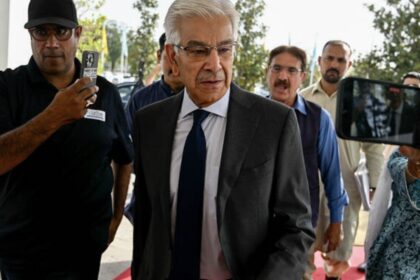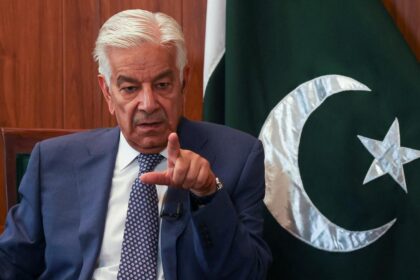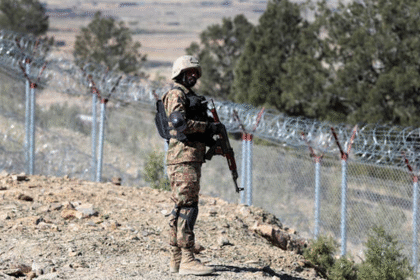Pakistan carried out precision airstrikes in Afghanistan, targeting the Gul Bahadur Group linked to Fitnah al Khawarij, after a two-day truce with the Afghan Taliban ended. The strikes followed a deadly suicide attack in North Waziristan that killed seven Pakistani soldiers. Islamabad has accused Kabul of sheltering militant groups like Fitnah al Khawarij and Fitnah tul Hindustan, warning that any source of terrorism will “pay a heavy price.”
ISLAMABAD: Pakistan has “conducted precision aerial strikes” in Afghan border areas, a senior security official told AFP on Saturday, shortly after a two-day truce between Islamabad and the Afghan Taliban expired. Afghan Taliban officials also confirmed the strikes.
The official said the “precision strike” targeted the Gul Bahadur Group — a local faction of Fitnah al Khawarij — which Islamabad says is being given safe haven by Kabul.
Just before the truce ended, a deadly suicide bombing and gun attack on a Pakistani military camp in North Waziristan claimed the lives of seven paramilitary troops. A faction of Fitnah al Khawarij claimed responsibility for the assault, according to local administration officials.
Pakistani forces reportedly managed to prevent the attackers from entering the main military base during the ensuing gunfight, killing four militants near the Afghan border. Pakistan’s Interior Minister Mohsin Naqvi confirmed that the troops successfully foiled the attack in North Waziristan, located in Khyber Pakhtunkhwa province.
An explosive-laden vehicle was rammed into the main entrance of security headquarters in Khadi village, a local official told Anadolu Agency, confirming that it was a suicide attack.
The incident came just a day after Pakistan’s military announced that 34 militants were killed during ongoing counterterrorism operations in the North Waziristan, South Waziristan, and Bannu districts of Khyber Pakhtunkhwa.
Pakistan’s Defence Minister Khawaja Muhammad Asif earlier accused Kabul of “acting as a proxy of India” and “plotting against Pakistan.”
In a strong statement posted on X (formerly Twitter), Asif said:
“From now on, demarches will no longer be framed as appeals for peace, and delegations will not be sent to Kabul.”
He further warned that “wherever the source of terrorism is, it will have to pay a heavy price.”
Security issues remain at the heart of the growing tensions between Islamabad and Kabul. Pakistan has repeatedly accused the Afghan Taliban of sheltering banned militant organizations such as Fitnah al Khawarij and Fitnah tul Hindustan, both of which Islamabad claims are involved in cross-border attacks against its forces. Kabul, however, denies the allegations.
Pakistani Foreign Office Spokesman Shafqat Ali Khan reiterated Islamabad’s position during his weekly press briefing on Friday, saying:
“Pakistan has repeatedly shared its concerns related to the presence of militant groups operating from Afghan soil.”
He added that “Pakistan expects concrete and verifiable actions against these terrorist elements by the Taliban regime.”
The latest escalation underscores the fragility of Pakistan-Afghanistan relations, with both sides struggling to maintain stability along one of the world’s most volatile borders.
Discover more from JUST UNTOLD STORY
Subscribe to get the latest posts sent to your email.











